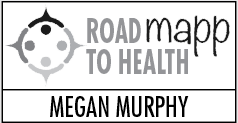Editor’s Note: MAPP, Mobilizing for Action through Planning & Partnerships, is a local coalition that aims to use and build upon our strengths to improve our individual, family, and community health. Health is defined broadly to include cultural, economic, educational, environmental, mental, physical and spiritual health.
Youth, do you have at least one adult besides your parents that you can go to for help if you had an important question affecting your life?
Adults, do you have at least one child or youth that is not your own whom you are there for if they had an important question affecting their life?
If you answer “yes” to this question, you are fulfilling an important resiliency factor for yourself and/or for a young person. If you answer “no” to this question, this is an important resiliency factor or asset to establish. Children and youth develop resiliency and assets through relationships with supportive adults and all youth need multiple supportive adults in their lives. It is a shared responsibility of all community members to build resiliency and assets in our young people and help them become thriving adults.
Need some ideas on ways to develop or support healthy relationships with young people?
• Greet all children, by name if you can.
• Get to know your friend’s children. Build a good relationship with them.
• Encourage your or your friend’s children to engage in outdoor activities with you, such as beach walks or fishing.
• Support activities that involve youth-adult partnerships.
• Join Big Brothers Big Sisters.
• Sponsor career days so young people can spend time with adults in professions that interest them.
• Plan inter-generational programs and events so that children and adults can get to know each other.
For more ideas, check out Alaska’s Initiative for Community Engagement suggestions at alaskaice.org/developmental-asset.
Everyone in the community, whether or not you are associated with an organization, initiative, or group, can work toward increasing the number of youth that have supportive adults in their lives.
In order to track whether or not our efforts are making an impact, the MAPP Steering Committee has recently released 10 resiliency measures. These 10 family well-being measures (check them out at mappofskp.net/well-being-status) are considered “community-level” measures because no individual or single organization can impact the measures by themselves, but rather these measures reflect a “collective impact” — the results of all combined efforts.
Thus, the more focus we give to moving the needle on these measures, the more our collective efforts can become aligned and more likely to make an impact.
Contributing to community-level measures was just part of last Friday’s MAPP community meeting. Fifty-four participants representing collaborative community efforts (Care Transitions, Climate Change Adaptation, Green Dot, Homer Arts and Culture Alliance, Homer Community Food Pantry, Homer Early Childhood Coalition, Homer Prevention Project, Homer Safe Routes, Kachemak Bay Environmental Education Alliance, Park Arts Recreation and Culture Needs Assessment, Transformations, and the Woodard Creek Coalition) all joined in discussions on ways in which their individual initiatives could align with the Family Well-being goals while also brainstorming ways to increase the effectiveness of their specific goals.
The Homer Early Child Coalition, Homer Prevention Project and Transformations workgroup goals and strategies are already highlighted in the MAPP Community Health Improvement Plan (accessible at www.mappofskp.net).
As additional groups capture their specific goals and strategies, they will be added to the plan so the vast array of collaborative strategies underway to Increase Family Well-being are accessible to the community.
The more aware we are of the common goals, the more intention we can bring to our individual efforts that reinforce the common goals. Your individual efforts are the building blocks of our collective impact. As one component of Family Well-being, let’s see if we can increase the number of youth with supportive adults in their lives.
Megan Murphy is the MAPP coordinator and can be reached at mappofskp@gmail.com or 235-0570.


